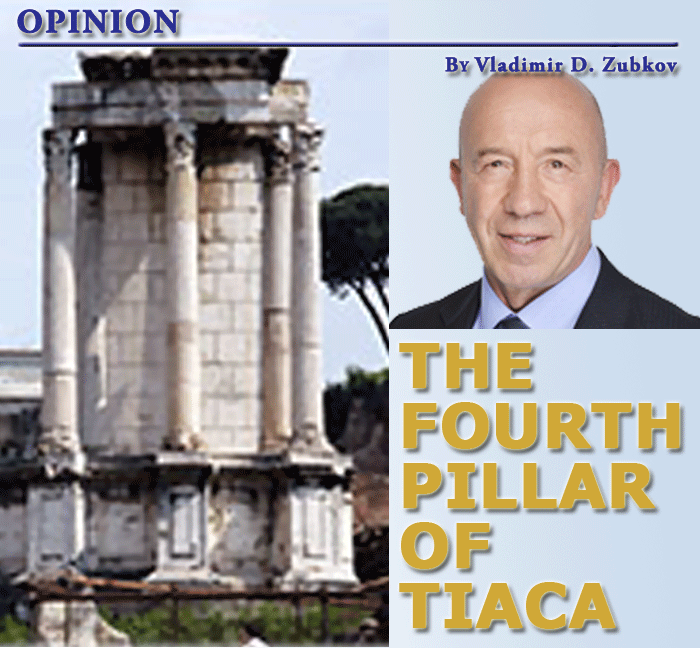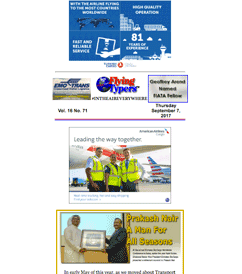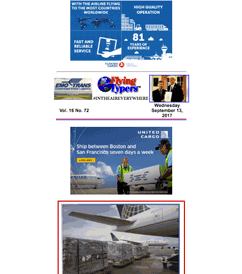
TIACA
traditionally has been declaring that its work is based on three pillars:
· Networking
· Knowledge
· Advocacy
Some
time ago, I suggested to the Board—and there was an agreement
in principle—that we need to add “Consultancy.”
A demand for consultancy exists in the
air cargo industry and TIACA’s readiness to provide service and
expertise should be an asset. One of the ways forward would be to establish
a roster of experts in different disciplines, which will be based initially
on our knowledge of people in the industry and then can be open to a
vetting process similar to the one for TIACA’s membership.
I have informally discussed this idea
with several people of recognized experience in the industry and received
positive feedback.
However, it’s not only the traditional
view on the consultancy, when an expert in IT or in cargo security or
digitization is invited to fix a problem or implement more modern procedures.
There is a place for partnering with governmental organizations in order
to bring benefits to the industry, using their interest in the modernization
of the air cargo processes and improvements in the infrastructure.
Let me give you an example: the Ministry
of Civil Aviation of India commissioned a study with an objective to
rationalize movement of air cargo and to facilitate doing business in
India. It appeared in December 2016 and gave guidance on how to develop
an electronic platform to digitize key stakeholder interactions; how
to allow for the reusability of data, thereby eliminating duplicate
data entry, reducing unnecessary paperwork by giving authorized data
access to the relevant supply chain stakeholder, and bringing in supply
chain visibility. Members of the TIACA Board have participated and Amar
More of Kale Logistics was even recognized in the “Report
of the Committee on National Air Cargo Community System (ACS)”.
This report may become a benchmark for
several global economies to create digital infrastructure for trade
facilitation in air cargo. The best practices and recommendations of
this Report can be replicated in any country and this work can lay a
very strong foundation to the digital future of air cargo.
Since we have amongst our members those
who have been involved in the study and its implementation, their knowledge
becomes a subject for consultancy. And it can be in demand not only
by the individual firms and entities, but also by governments and trade
organizations.
Another example from the experiences
of several member airports, which also happened to be working in the
air cargo community, but in the airport environment. It’s the
same subject, but a different layer. In the end of June, on the fringes
of the “2nd Meeting on Air Cargo Development in Africa,”
held in Ethiopia by ICAO and TIACA, I organized a meeting between Piet
Demunter, Director Strategic Development, and Steven Polmans, Head of
Cargo & Logistics from Brussels Airport Company, and senior International
Civil Aviation Organization (ICAO) officials: Dr. Benard Aliu, President
of the ICAO Council, Boubacar Djibo, Director of Air Transport Bureau,
and ICAO Regional Directors.
One of the major issues discussed both
at the conference and at the meeting with ICAO officials was African
infrastructure funding and financing, airports in particular. We all
know how difficult it is to secure financing even for important infrastructure
projects. Plus the construction of the airport facilities is very time-consuming.
Not relenting on this objective, we looked together with ICAO at the
possibility of more efficient utilization of the existing infrastructure,
specifically in the African airports.
Piet and Steven described to ICAO the
“Airport Community” concept used at Brussels Airport. It
doesn’t require capital investments, but requires creation of
a framework for better collaboration between all the services involved
in the air cargo movement at the airport. ICAO showed noteworthy interest.
The outcome of this discussion is the agreement between those who met
that Brussels Airport would make an assessment of the possibilities
for providing consultancy and practical assistance to African airports.
It also requires training, and this is
where Brussels and other like-minded airports can provide practical
solutions. The TIACA Secretariat and Brussels Airport will work together
on the development of a proposal to ICAO.
At the ES/AGM in October we have a session
that will examine the consultancy issue. I am inviting you to take active
part.
Vladimir D. Zubkov




 Vol.
16 No. 71
Vol.
16 No. 71 Vol.
16 No. 72
Vol.
16 No. 72